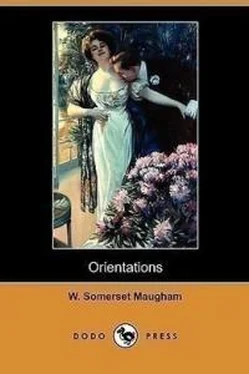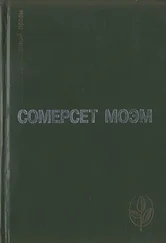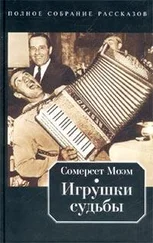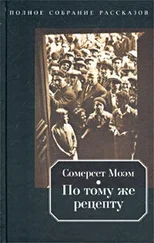Уильям Моэм - Orientations
Здесь есть возможность читать онлайн «Уильям Моэм - Orientations» весь текст электронной книги совершенно бесплатно (целиком полную версию без сокращений). В некоторых случаях можно слушать аудио, скачать через торрент в формате fb2 и присутствует краткое содержание. Год выпуска: 2014, Издательство: epubBooks Classics, Жанр: Классическая проза, на английском языке. Описание произведения, (предисловие) а так же отзывы посетителей доступны на портале библиотеки ЛибКат.
- Название:Orientations
- Автор:
- Издательство:epubBooks Classics
- Жанр:
- Год:2014
- ISBN:нет данных
- Рейтинг книги:5 / 5. Голосов: 1
-
Избранное:Добавить в избранное
- Отзывы:
-
Ваша оценка:
- 100
- 1
- 2
- 3
- 4
- 5
Orientations: краткое содержание, описание и аннотация
Предлагаем к чтению аннотацию, описание, краткое содержание или предисловие (зависит от того, что написал сам автор книги «Orientations»). Если вы не нашли необходимую информацию о книге — напишите в комментариях, мы постараемся отыскать её.
Orientations — читать онлайн бесплатно полную книгу (весь текст) целиком
Ниже представлен текст книги, разбитый по страницам. Система сохранения места последней прочитанной страницы, позволяет с удобством читать онлайн бесплатно книгу «Orientations», без необходимости каждый раз заново искать на чём Вы остановились. Поставьте закладку, и сможете в любой момент перейти на страницу, на которой закончили чтение.
Интервал:
Закладка:
'Did you think I was less a man than the fisherman you see walking beneath the trees at night?'
'It is all over now,' she sighed.
'What do you mean?'
'I can't stay here with you alone.'
'You're not going away?'
'Before, there was no harm in our being together at the hotel; but now—'
'Oh, Valentia, don't leave me. I can't—I can't live without you.'
She heard the unhappiness in his voice. She turned to him again and laid her two hands on his shoulders.
'Why can't you forget it all, and let us be good friends again? Forget that you are a man. A woman can remain with a man for ever, and always be content to walk and read and talk with him, and never think of anything else. Can you forget it, Ferdinand? You will make me so happy.'
He did not answer, and for a long time they stood on the bridge in silence. At last he sighed—a heartbroken sigh.
'Perhaps you're right. It may be better to pretend that we are friends. If you like, we will forget all this.'
Her heart was too full; she could not answer; but she held out her hands to him. He took them in his own, and, bending down, kissed them.
Then they walked home, side by side, without speaking.
V
Next morning Valentia received M. Rollo's answer to her letter. He apologised for his delay in answering.
' You are a philosopher ,' he said—she could see the little snigger with which he had written the words—' You are a philosopher, and I was afraid lest my reply should disturb the course of your reflections on friendship. I confess that I did not entirely understand your letter, but I gathered that the sentiments were correct, and it gave me great pleasure to know that your experiment has had such excellent results. I gather that you have not yet discovered that there is more than a verbal connection between Friendship and Love. '
The reference is to the French equivalents of those states of mind.
' But to speak seriously, dear child. You are young and beautiful now, but not so very many years shall pass before your lovely skin becomes coarse and muddy, and your teeth yellow, and the wrinkles appear about your mouth and eyes. You have not so very many years before you in which to collect sensations, and the recollection of one's loves is, perhaps, the greatest pleasure left to one's old age. To be virtuous, my dear, is admirable, but there are so many interpretations of virtue. For myself, I can say that I have never regretted the temptations to which I succumbed, but often the temptations I have resisted. Therefore, love, love, love! And remember that if love at sixty in a man is sometimes pathetic, in a woman at forty it is always ridiculous. Therefore, take your youth in both hands and say to yourself, "Life is short, but let me live before I die!" '
She did not show the letter to Ferdinand.
Next day it rained. Valentia retired to a room at the top of the house and began to paint, but the incessant patter on the roof got on her nerves; the painting bored her, and she threw aside the brushes in disgust. She came downstairs and found Ferdinand in the dining–room, standing at the window looking at the rain. It came down in one continual steady pour, and the water ran off the raised brickwork of the middle of the street to the gutters by the side, running along in a swift and murky rivulet. The red brick of the opposite house looked cold and cheerless in the wet…. He did not turn or speak to her as she came in. She remarked that it did not look like leaving off. He made no answer. She drew a chair to the second window and tried to read, but she could not understand what she was reading. And she looked out at the pouring rain and the red brick house opposite. She wondered why he had not answered.
The innkeeper brought them their luncheon. Ferdinand took no notice of the preparations.
'Will you come to luncheon, Mr White?' she said to him. 'It is quite ready.'
'I beg your pardon,' he said gravely, as he took his seat.
He looked at her quickly, and then immediately dropping his eyes, began eating. She wished he would not look so sad; she was very sorry for him.
She made an observation and he appeared to rouse himself. He replied and they began talking, very calmly and coldly, as if they had not known one another five minutes. They talked of Art with the biggest of A's, and they compared Dutch painting with Italian; they spoke of Rembrandt and his life.
'Rembrandt had passion,' said Ferdinand, bitterly, 'and therefore he was unhappy. It is only the sexless, passionless creature, the block of ice, that can be happy in this world.'
She blushed and did not answer.
The afternoon Valentia spent in her room, pretending to write letters, and she wondered whether Ferdinand was wishing her downstairs.
At dinner they sought refuge in abstractions. They talked of dykes and windmills and cigars, the history of Holland and its constitution, the constitution of the United States and the edifying spectacle of the politics of that blessed country. They talked of political economy and pessimism and cattle rearing, the state of agriculture in England, the foreign policy of the day, Anarchism, the President of the French Republic. They would have talked of bi–metallism if they could. People hearing them would have thought them very learned and extraordinarily staid.
At last they separated, and as she undressed Valentia told herself that Ferdinand had kept his promise. Everything was just as it had been before, and the only change was that he used her Christian name. And she rather liked him to call her Valentia.
But next day Ferdinand did not seem able to command himself. When Valentia addressed him, he answered in monosyllables, with eyes averted; but when she had her back turned, she felt that he was looking at her. After breakfast she went away painting haystacks, and was late for luncheon.
She apologised.
'It is of no consequence,' he said, keeping his eyes on the ground. And those were the only words he spoke to her during the remainder of the day. Once, when he was looking at her surreptitiously, and she suddenly turned round, their eyes met, and for a moment he gazed straight at her, then walked away. She wished he would not look so sad. As she was going to bed, she held out her hand to him to say good–night, and she added,—
'I don't want to make you unhappy, Mr White. I'm very sorry.'
'It's not your fault,' he said. 'You can't help it, if you're a stock and a stone.'
He went away without taking the proffered hand. Valentia cried that night.
In the morning she found a note outside her door:—
' Pardon me if I was rude, but I was not master of myself. I am going to Volendam; I hate Monnickendam .'
VI
Ferdinand arrived at Volendam. It was a fishing village, only three miles across country from Monnickendam, but the route, by steam tram and canal, was so circuitous, that, with luggage, it took one two hours to get from place to place. He had walked over there with Valentia, and it had almost tempted them to desert Monnickendam. Ferdinand took a room at the hotel and walked out, trying to distract himself. The village consisted of a couple of score of houses, built round a semi–circular dyke against the sea, and in the semi–circle lay the fleet of fishing boats. Men and women were sitting at their doors mending nets. He looked at the fishermen, great, sturdy fellows, with rough, weather–beaten faces, huge earrings dangling from their ears. He took note of their quaint costume—black stockings and breeches, the latter more baggy than a Turk's, and the crushed strawberry of their high jackets, cut close to the body. He remembered how he had looked at them with Valentia, and the group of boys and men that she had sketched. He remembered how they walked along, peeping into the houses, where everything was spick and span, as only a Dutch cottage can be, with old Delft plates hanging on the walls, and pots and pans of polished brass. And he looked over the sea to the island of Marken, with its masts crowded together, like a forest without leaf or branch. Coming to the end of the little town he saw the church of Monnickendam, the red steeple half–hidden by the trees. He wondered where Valentia was—what she was doing.
Читать дальшеИнтервал:
Закладка:
Похожие книги на «Orientations»
Представляем Вашему вниманию похожие книги на «Orientations» списком для выбора. Мы отобрали схожую по названию и смыслу литературу в надежде предоставить читателям больше вариантов отыскать новые, интересные, ещё непрочитанные произведения.
Обсуждение, отзывы о книге «Orientations» и просто собственные мнения читателей. Оставьте ваши комментарии, напишите, что Вы думаете о произведении, его смысле или главных героях. Укажите что конкретно понравилось, а что нет, и почему Вы так считаете.










